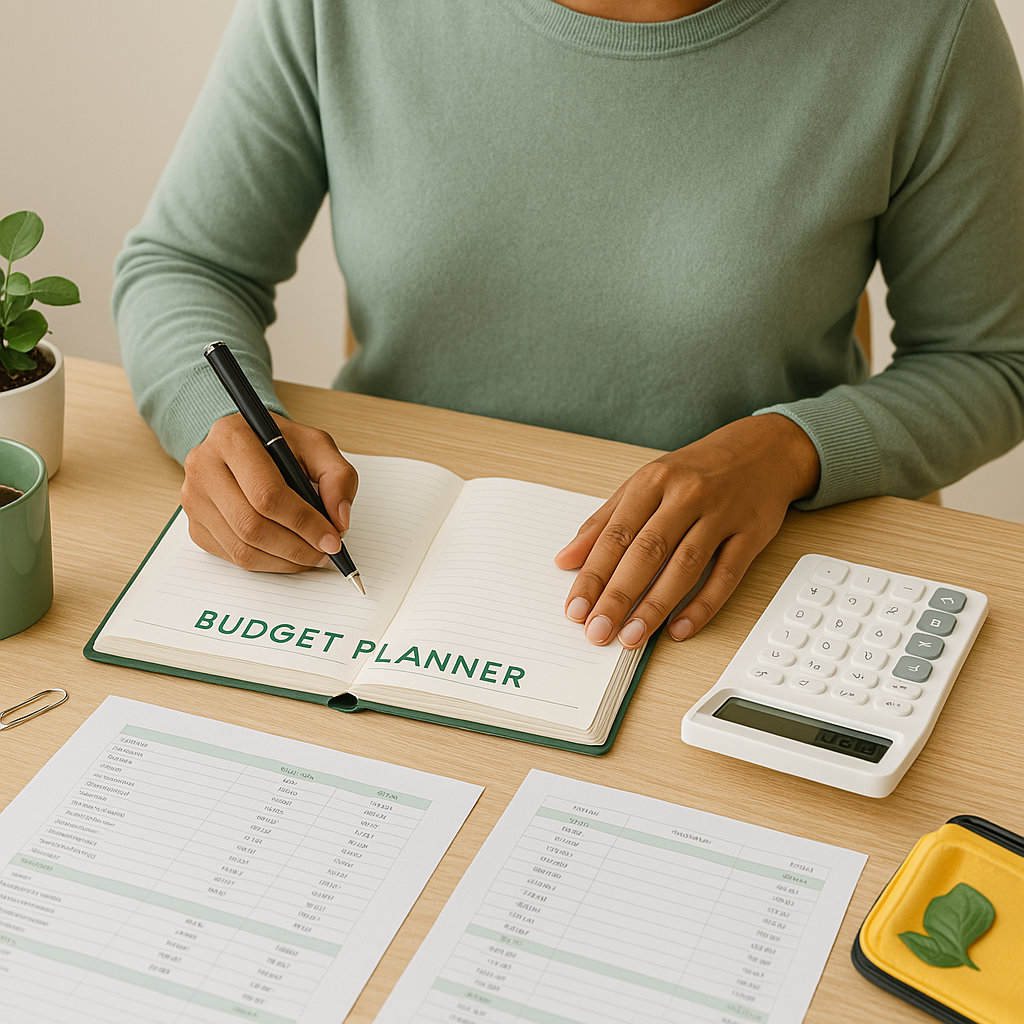Building Your Financial Foundation: Creating a Budget That Works For You
Payday arrives, and your account balance jumps -- a moment of financial relief. Yet somehow, days later, you're checking your balance nervously before buying lunch. Breaking free from this cycle starts with a single, powerful tool: a personalized budget that actually works for your life.

Payday arrives, and your account balance jumps – a moment of financial relief. Yet somehow, three days later, you're checking your balance nervously before buying lunch. By the week's end, you're counting the days until the next payday, wondering where the money went. This cycle feels frustratingly familiar to many convenience store employees, but breaking free starts with a single, powerful tool: a personalized budget that actually works for your life.
Budgeting often gets misunderstood as restrictive or complicated. The truth? An effective budget brings freedom, not limitation. It transforms your relationship with money from reactive to proactive, from constant stress to confident control. A well-built budget doesn't just track spending – it aligns your money with what truly matters to you.
The Real Purpose of a Budget
A budget serves as your financial roadmap, connecting today's actions with tomorrow's goals. Rather than simply limiting spending, effective budgets create clarity about your true financial situation and direct money toward your genuine priorities. They eliminate the anxiety of financial uncertainty, build paths toward meaningful goals, prepare for both expected and unexpected expenses, and allow for enjoyment within sustainable boundaries. The most powerful budget isn't the most restrictive – it's the one you'll actually use consistently.
Starting Where You Are
Building an effective budget begins with an honest assessment. Before creating guidelines for the future, understand where your money goes now. For two weeks, record every expense – coffee, gas, groceries, streaming services – everything. Many people discover surprising patterns in this exercise.
Next, list all income, including your primary job, any side gigs, benefits, tips, or other money sources. Use after-tax amounts to understand your actual available funds. Then, distinguish between needs and wants. Housing, basic food, utilities, transportation to work, and minimum debt payments represent true necessities.
Beyond necessities, acknowledge recurring financial commitments like subscriptions, phone plans, insurance, and regular expenses that arrive monthly. This baseline understanding provides the foundation for building a budget that works with your actual life rather than an idealized version of it.
Creating Your Personalized Budget Framework
Effective budgets share common elements while reflecting individual priorities. Your budget might live in a specialized app, a spreadsheet, or even a paper notebook. The best format is the one you'll consistently use.
After accounting for necessities and obligations, distribute the remaining money among savings, debt reduction, and discretionary spending. Set aside money each month for expenses that don't occur monthly, like car maintenance, annual subscriptions, or holiday spending.
Even small amounts directed to savings establish crucial financial stability. Begin with an emergency fund goal of $500-$1,000 before tackling longer-term savings. Remember, your first budget represents a starting point, not a perfect solution. Expect to refine your approach over several months.
Making Your Budget Stick
Creating a budget matters far less than following it consistently. Review your budget weekly at first, then at least monthly once established. Sunday evenings often work well for these reviews. Set up automatic transfers for savings and bill payments to reduce decision fatigue and missed payments.
For categories where overspending happens easily (like entertainment or dining), consider withdrawing a set cash amount to create a physical spending boundary. Share your financial goals with someone you trust who will support your progress without judgment. When you reach budgeting milestones, reward yourself in ways that don't undermine your progress.
Addressing Common Challenges
Several obstacles frequently derail budgeting efforts. If your hours or tips fluctuate, budget based on your minimum reliable income, then create a system for allocating anything above that minimum. Your emergency fund exists precisely for unexpected situations. As it grows, these surprises become manageable rather than catastrophic.
Develop comfortable responses for declining expensive activities and suggest affordable alternatives when facing social pressure. Periodically review whether your budget includes reasonable amounts for enjoyment and personal care to avoid budget fatigue.
Moving Beyond Survival Mode
As your budget becomes established, shift focus toward longer-term financial health. Consider increasing retirement contributions, building larger emergency reserves, paying down high-interest debt, saving for specific goals like education or travel, and investing in skills that increase earning potential.
The journey from paycheck-to-paycheck stress to financial confidence happens gradually through consistent, intentional choices guided by your personalized budget.
When you look at your finances six months from now, will you still wonder where your money has disappeared, or will you feel the growing confidence that comes from directing your resources toward what truly matters in your life?